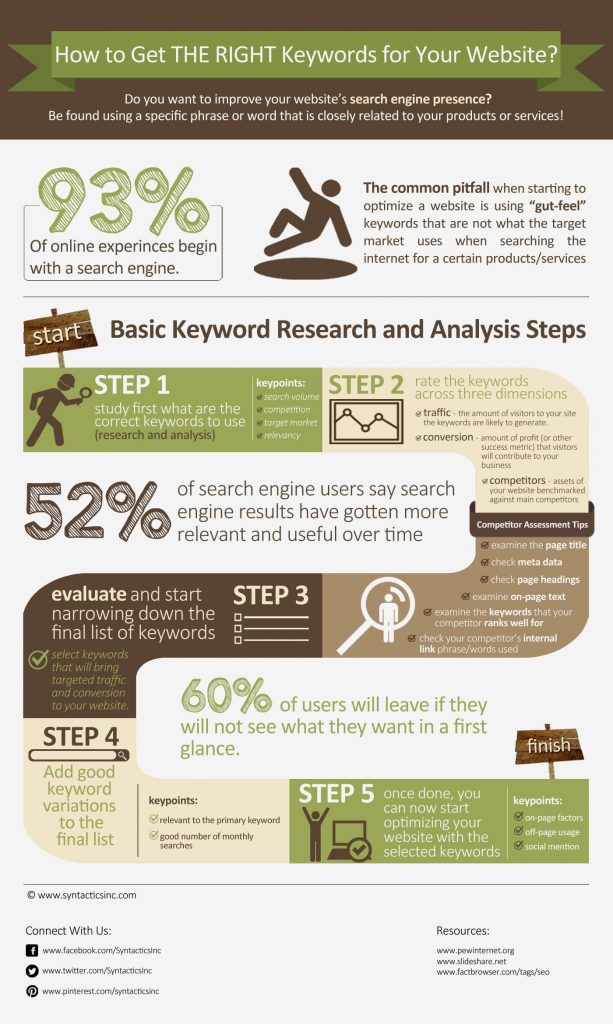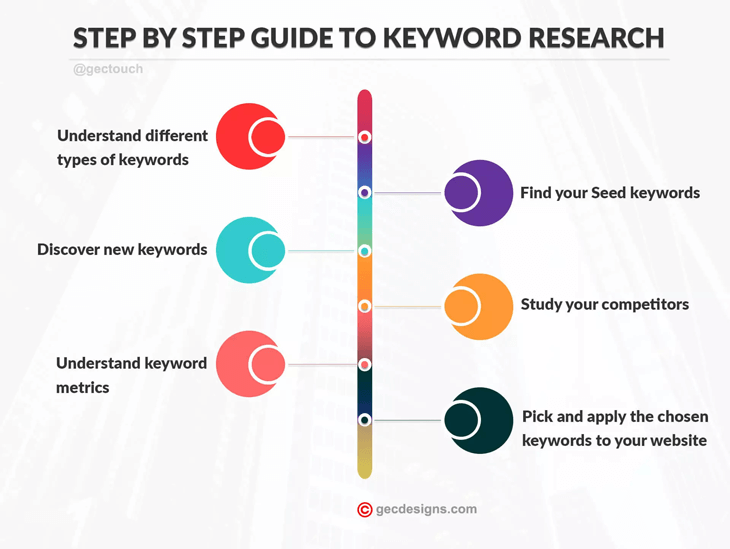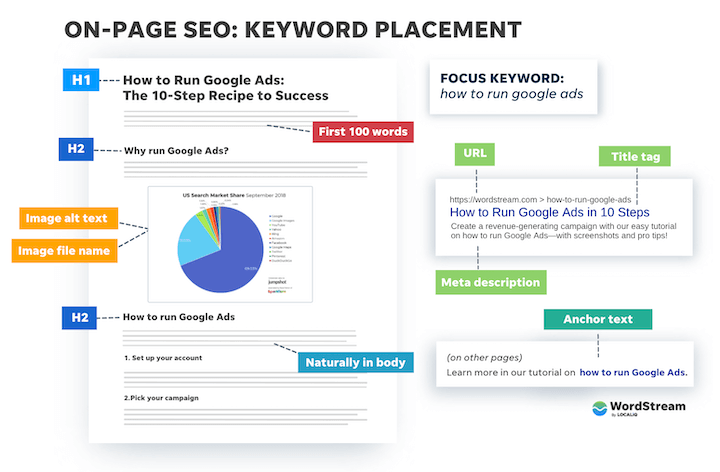The Ultimate Guide: How to Efficiently Search Keywords on a Web Page
Discover the game-changing technique to uncover hidden gems with our ultimate guide on efficiently searching keywords on web pages!
 Image courtesy of Pixabay via Pexels
Image courtesy of Pixabay via Pexels
Table of Contents
Welcome to “The Ultimate Guide: How to Efficiently Search Keywords on a Web Page.” In today’s digital age, where information overload is the norm, finding specific information on a web page can be a daunting task. That’s where keyword search comes in handy. Whether you’re a student researching, a professional seeking specific data, or simply a curious mind, mastering the art of searching for keywords on web pages can save you time and frustration. In this comprehensive guide, we’ll walk you through the process of keyword search step-by-step, ensuring that you become a power user capable of navigating the vast expanse of the internet effortlessly.
Understanding the Basic Structure of Web Pages
Before diving into the world of keyword search, it’s crucial to understand the basic structure of web pages. Web pages are built using HTML (Hypertext Markup Language) tags that structure the content. Familiarizing yourself with these tags will help you identify important elements on a page for effective keyword search. Headings, paragraphs, lists, and images are commonly used elements on a web page that often contain valuable information.
Master the Art of Keyword Searching with Our Ultimate Guide!
Unlock the Secrets to Efficiently Search Keywords: Subscribe to our Newsletter Today!
Preparing for a Keyword Search
Prior to starting your keyword search, it’s important to determine the purpose of your search. Clearly define the specific information you’re looking for, as it will help streamline your search process. Additionally, choose the most suitable search engine for your needs. While many opt for popular search engines like Google or Bing, specific search engines such as DuckDuckGo or specialized databases like PubMed should be considered based on the nature of your search.
“Unlock the power of keywords to enhance your web searching! 🌐✨ Discover the ultimate guide to efficiently searching keywords on a web page and discover a world of limitless information at your fingertips. 💡🔍 [insert link] #SEO #Keywords #WebSearching”
Using Browser Find Function
Most modern web browsers offer a built-in “Find” function, which is an indispensable tool for searching keywords within a web page. To access this function, follow these steps:
 Image courtesy of www.syntacticsinc.com via Google Images
Image courtesy of www.syntacticsinc.com via Google Images
- Open your preferred web browser (e.g., Chrome, Firefox, Safari).
- Press “Ctrl+F” (or “Command+F” on a Mac) to open the Find bar.
- Type the keyword(s) you want to search for within the web page.
- As you type, the browser will highlight and scroll to the first occurrence of the searched keyword.
- Use the “Next” or “Previous” buttons on the Find bar to navigate through all occurrences of the keyword on the page.
This method allows you to quickly scan the web page and locate the desired information by highlighting or scrolling to each occurrence of the keyword.
Utilizing Advanced Search Techniques
To further enhance your keyword search capabilities, advanced search techniques can be employed. Being aware of these techniques can significantly improve your search efficiency. Here are a few tips:
- Keyboard Shortcuts: Instead of opening the Find bar each time, use the “Ctrl+F” (or “Command+F” on a Mac) shortcut for quicker access.
- Case Sensitivity and Whole Word Search: By default, most browsers perform case-insensitive searches. However, you can activate the case-sensitive option in the Find bar for more precise searches. Additionally, opting for a whole word search ensures that the browser only matches complete words, minimizing unrelated search results.
- Regular Expressions: If you’re comfortable with regular expressions, you can wield their power during keyword searches. Regular expressions allow for complex search patterns, enabling you to find specific patterns of characters or words within a page.
By utilizing these advanced techniques, your keyword search becomes more efficient and targeted.
Employing Browser Extensions and Plugins
To further enhance your keyword search capabilities, browser extensions and plugins can be a valuable asset. Here are some popular options:
 Image courtesy of aioseo.com via Google Images
Image courtesy of aioseo.com via Google Images
Once you have chosen a suitable extension or plugin, follow the instructions provided by the developer to install and set it up in your preferred web browser. These tools often allow you to customize various settings, including highlighting search results and saving search history for future reference.
Searching Keyword on Mobile Devices
While most of the techniques mentioned above apply to desktop browsing, mobile devices have their own built-in search functionalities. To search for a keyword on a mobile web page:
- Open the web page you wish to search on your mobile browser.
- Tap the options menu (usually represented by three dots or lines).
- Select the “Find in Page” or similar option.
- Type the keyword you want to search for within the web page.
- The browser will highlight and scroll to the first occurrence of the keyword.
- Swipe or tap the “Next” or “Previous” buttons to navigate through the page.
If the browser lacks this feature, consider using an alternative browser or installing a mobile browser extension that provides advanced search capabilities.
Keyword Search Tips and Best Practices
While searching for keywords on web pages, keep the following tips and best practices in mind to optimize your search experience:
 Image courtesy of www.wordstream.com via Google Images
Image courtesy of www.wordstream.com via Google Images
- Use Precise and Relevant Keywords: Ensure that the keywords you search for are specific and directly related to the information you seek. Using ambiguous or broad terms may yield unrelated or overwhelming search results.
- Scan the Page Content: Instead of blindly searching for keywords, it’s always beneficial to scan the page content initially. This gives you an overview of the relevant sections or elements on the page where your keyword might be present.
- Combine Search Strategies: Employ multiple search strategies, such as using advanced techniques alongside browser extensions or plugins, to expand your search capabilities further and improve your chances of finding the desired information.
By adhering to these tips, you can take your keyword search skills to the next level.
Troubleshooting Common Issues
Occasionally, you may encounter certain issues while searching for keywords on web pages. Here are two commonly experienced problems and their solutions:
- Non-Responsive Search Functions: If the browser’s Find function does not respond, try refreshing the page or restarting the browser. In some cases, clearing the browser cache may also resolve the issue.
- Restricted Access Areas: In certain scenarios, web pages may be protected or inaccessible for keyword search. If facing this limitation, consider alternative sources such as specific databases or authenticated platforms where the desired information may be available.
By troubleshooting these common issues, you can ensure a smooth keyword search experience.
Master the Art of Keyword Searching with Our Ultimate Guide!
Unlock the Secrets to Efficiently Search Keywords: Subscribe to our Newsletter Today!
Conclusion
Congratulations! You have now completed “The Ultimate Guide: How to Efficiently Search Keywords on a Web Page.” Armed with the knowledge and techniques provided in this guide, you have become a power user capable of navigating web pages effortlessly. Remember to practice these skills regularly to enhance your keyword search proficiency further. Efficient keyword search is a valuable tool in today’s digital landscape, saving you time and frustration while empowering you with the ability to access precise information with ease. Happy searching!

